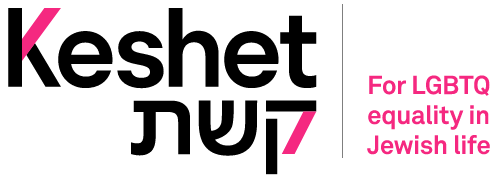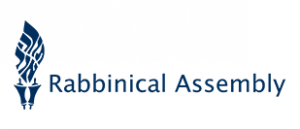Parashat Matot-Masei: Reuven, Gad, and the Courage to Speak
Sermon given July 26, 2025
Shabbat Shalom, everybody.
This Shabbat, we find ourselves at the end of Bamidbar– about to begin the book of Deuteronomy. Our ancestors are standing at the edge of the Promised Land, after years and years of travelling and infighting and plagues and manna falling from the sky. Can you imagine what that must have felt like?
Our ancestors knew they were approaching what would become, one day, Israel– approaching the Jordan River, ready to leave slavery and homelessness behind them and settle in what would become our homeland.
But suddenly, there on the edge of the Promised Land, the tribes of Reuven and Gad decided to shake things up. With the Promised Land tantalizingly close, and the other ten tribes raring to go, Reuven and Gad pulled Moses aside and shared that actually, they didn’t want to enter the Promised Land after all. After everything they had gone through with the other Israelites, they told Moses they would rather stay on the East side of the River, and raise their livestock there.
And Moses, quite understandably, was extremely upset. This was not the plan, nor was it how everyone else was reacting to their arrival outside of Eretz Yisrael. He warned the tribes of Reuven and Gad that they would bring God’s wrath down upon the Israelites if they didn’t cross the Jordan, and reminded them of others who had gone against God’s will and paid the price.
But Reuven and Gad were not swayed. They continue bravely arguing their case, ultimately offering a compromise. They promised to fight alongside the other tribes to conquer the land of Israel, but reiterated that their personal wish was to return east of the Jordan River, and live the life of their choosing there. They promised:
לֹ֥א נָשׁ֖וּב אֶל־בָּתֵּ֑ינוּ עַ֗ד הִתְנַחֵל֙ בְּנֵ֣י יִשְׂרָאֵ֔ל אִ֖ישׁ נַֽחֲלָתֽוֹ:
We shall not return to our land until each other Israelite has received their land.
And fascinatingly, once they make this concession, Moses– and God– agree to this deal. And everyone lived happily ever after (except for Moses, of course, who didn’t get to see the Promised Land.)
On a zoomed-out level, the request made by the tribes of Reuven and Gad was surprisingly chutzpadik. It also calls into question a core Jewish tenant: what it means to be connected to the Promised Land itself, and whether or not there are multiple legitimate ways to support Israel.
Because there on the banks of the Jordan, Reuven and Gad essentially said to the rest of the tribes, “We care about the Promised Land, and we will support you in your quest for it, but our hearts are calling us in a different direction.”
And in ways I could never have anticipated, this fascinating story from our Torah, the contention between the tribes, the understandable anger of Moses, the bravery of Reuven and Gad, and the wrestling towards compromise, directly mirrors some of the intra-Jewish tension that has been building within us as a community since Hamas attacked on October 7, 2023, and the war ensued.
Because we sure don’t all have the same vision of the Promised Land right now. In this room, in this state, in this country, in this world. There is wide, and deep, disagreement among Jews all over the world about what Israel should and shouldn’t be doing, and what we as American Jews should or shouldn’t be doing about any of it. And at the heart of the matter is an uncomfortable, yet deeply important truth, which the tribes of Reuven and Gad remind us has been a part of our people for thousands of years: the truth that not only has there ALWAYS been disagreement among our people over how to relate to Israel, but that that’s OK. There is a way for us to navigate this sacred disagreement. Not only is it OK for us to disagree, but, as demonstrated in our Torah portion, as long as we can find the core values that unite us, as Reuven and Gad did, our disagreements do not have to tear us apart, even when they hurt.
There’s a special name for sacred disagreement in Judaism, machloket l’shem shamayim, an argument for the sake of heaven. And this type of argument, this type of machloket, is especially hard to navigate in a caring community like this one, that values its members holding a variety of beliefs about all kinds of things.
I’ve been at TBE for a month this week. In that time, I’ve had congregants and staff members share with me that they are nervous or scared to talk about Israel and the War in Gaza with their friends and family, let alone to speak up at shul. And you know what? That makes sense to me, because it’s not easy for me, either. It’s hard to speak up when we know that the people we care about the most might disagree with us.
But as your Rabbi, if I want all of us to be brave, and I want us all to be able to have difficult discussions about the things that pull at our hearts, then I need to model that bravery first. And that is what I would like to do today.
I’d like to tell you about something I did this week. This week, I signed a letter, a public letters, written by three international rabbinic colleagues across denominations and signed, as of when Shabbat came in last night, by over 750 other rabbis around the world, including several of my colleagues here in Maine.
Part of the power of this particular letter is in that it does not compromise on our shared connection to Israel. As a Zionist, this is important to me, and it echoes Reuven and Gad’s willingness to support Israel even when they did not feel the same way about it that the other tribes did. The letter clearly affirms Israel’s right to exist and defend itself, along with acknowledging the existential threats over which Israel truly has no direct power. It names the evil that is Hamas, and calls for the return of the remaining hostages.
And yet, the letter does not stop there. Instead, it names the areas where Israel does, indeed, have power and influence over the outcome of the situation. Specifically, the letter addresses the piles of food aid waiting outside of Gaza. The letter continues, and I quote:
“In the name of the sanctity of life, of the core Torah value[...] that every person is created in God’s image[...]
In the name of what the Jewish People has learnt bitterly from history as the victim, time and again,[...]
In the name of the moral reputation not just of Israel, but of Judaism itself, the Judaism to which our lives are devoted,
We call upon the Prime Minister and the Government of Israel
To respect all innocent life;
To stop at once the use and threat of starvation as a weapon of war;
[and] To allow extensive humanitarian aid, under international supervision, while guarding against control or theft by Hamas;”
Interestingly, the leadership of the Conservative Movement, to which TBE is affiliated, also decided to release a statement this week, calling on Israel to allow food aid into Gaza. It said, and I quote,
“Even though we believe that Hamas could end this conflict immediately by releasing the hostages and providing care to its civilian population, the Israeli government must still do everything in its power to ensure humanitarian aid reaches those in need.”
As a Zionist, as a Rabbi, and as a Jew, I believe it is important that any discussion of Israel be grounded in love, in ahavat Yisrael. And yet, like how Reuven and Gad disagreed with the other tribes about what kind of connection they and their descendants should have to the land, so too Zionists disagree amongst ourselves about what that ahavat Yisrael should look like.
The Midrash in Bereshit Rabbah teaches us that:
כל אהבה שאין עמה תוכחה, אינה אהבה.
That any true love must contain within it the ability to remind each other when we fall short.
As for me, I believe that Zionism, and Ahavat Yisrael– a true love of Israel– must include within them both an appreciation of the many things Israel does right (such as its democracy, its pursuit of human rights, and its innovations and inventions) as well as tochecha, or loving rebuke, when it does not live up to its own ideals. I believe that to love anything truly is to be able to speak up when we believe it isn’t being its best self. And I cannot look at what is happening to thousands of children in Gaza right now, or hear the openly racist and hateful rhetoric coming from some of the top lawmakers in Israel right now as they discuss the plight of the Gazans, and say that I believe Israel is being its best self at this moment.
My heart has been broken since October 7 in a way that I don’t think will ever completely heal, and I know that I am not alone in that. The evil that Jews and Israelis in particular face from all sides is real and horrific.
And at the same time, my heart has broken in new ways in the past months as the numbers and images of gaunt Gazans and the testimony of IDF soldiers being ordered to do things that go against their conscience have become public. My heart breaks for those soldiers, too, who out of love for their own people are being put into a situation that is deeply unfair to their own physical and emotional well-being. The status quo is hurting both Gazans and Israelis in the short term AND in the long term.
This isn’t easy to say, but I believe I must.
I find myself turning deeply to Torah in moments like this, because I know we are not the first humans or Jews to face difficult moments. As I speak today, I am trying to channel Reuven and Gad. I find myself, as I stand before you and share these words, hoping for the courage that they must have needed to approach Moses and say “We want a different way.”
For the past two years, as we have read through the cycle of our holiest book, the plight of the hostages, the Israelis, the Gazans, and everyone impacted by the conflict has been near to our hearts.
When in Genesis, Abel’s blood cries out from the Earth, we thought about this conflict. When in the desert, the Israelites cried out to God in fear and hunger, we thought of hostages wasting away in tunnels and the children above ground without access to nutrients. When in Leviticus, God tells us, v’ahavta l’reicha ca’mocha, you shall love your neighbor as yourself– what could we do, but think of this awful, awful conflict, and think of all of us?
And when we opened our doors at our Seders this year, and we said, Let all who are hungry come and eat– we had to think of this conflict, and of the hostages, and the children without food amidst the rubble. Our own spiritual suffering has grown.
Are these just words, or do we mean them? Are we comfortable having caveats on our deepest spiritual obligations to one another as human beings?
I have to believe, as a rabbi, that there is not a limit to the compassion and love we can put into the world. I have to believe that saving a life, any life, especially the life of a child, is a priceless gift, and a sacred act.
In the spirit of engaging in machloket l’shem shamayim, I offer my conclusions today as my own, as a starting point for future discussion, in the hope that as a community we can openly wrestle with this, and openly name the core values that we share. I know that this community has a wide variety of beliefs about Israel, and I want you to know that my door, my ears, and my heart are open to all of you. I do not have a monopoly on what is right or what is wrong.
I do not know how to get the hostages back, though I desperately wish I did. I do not know how to guarantee Israel’s safety in the future, though I desperately wish I did. I know there is great disagreement within the Jewish community about how to proceed, and none of us know what will happen next.
But what I am certain of is that allowing children to starve will not bring about the Promised Land any of us are hoping for.
Shabbat shalom, my friends.



